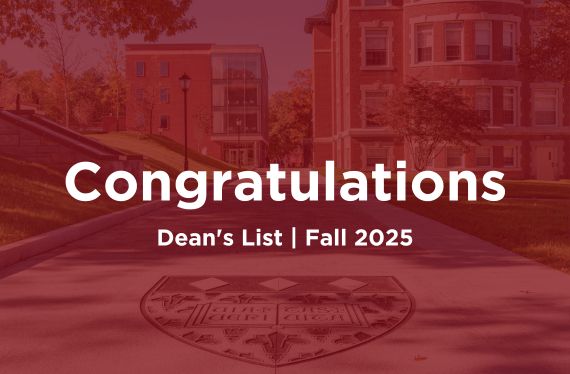For many healthcare professionals, an MBA might seem about as relevant as a Master’s in Nursing would be to a financial planner. So, what made a nurse practitioner, a clinical research associate, a chemistry major and a former paramedic decide that, from a bottom-line perspective, the degree would provide a compelling ROI and then some?
As the inaugural cohort of the new Regis Professional MBA discovered, they are the most tangible difference between the program at their alma mater and the generic degree available elsewhere. The program was designed for and open exclusively to Regis graduate students and alumni, meaning that they could return to a familiar, supportive community environment to pursue it, that the content would be specific to their professions, and that they could apply previous coursework and receive the degree with as few as six additional online courses. Suddenly, students who might never have considered an MBA before could see how the degree could add value in their present work and future prospects.
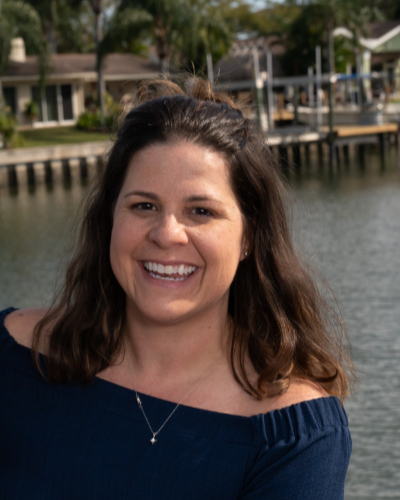 For Samantha Nugent MSN ’17, a nurse practitioner from Arlington, Massachusetts, the notion of an MBA was initially “the furthest from my mind. To be honest, I had told myself I would never go to school again given I had just done so much schooling without a break. “Yet three years after receiving her master's in the Family NP program at Regis, Nugent discovered how healthcare and business “all just ties in so well together.”
For Samantha Nugent MSN ’17, a nurse practitioner from Arlington, Massachusetts, the notion of an MBA was initially “the furthest from my mind. To be honest, I had told myself I would never go to school again given I had just done so much schooling without a break. “Yet three years after receiving her master's in the Family NP program at Regis, Nugent discovered how healthcare and business “all just ties in so well together.”
After working in long-term care and short-term rehab, Nugent now provides annual wellness visits through home care. Working for Optum Hospital and Health Care, she “realized that yes, these [business] goals are in place to help meet that bottom line (thanks, finance class!) but also to care for their members and their employees (thanks, ethics class!). So far, each class I have taken, I can directly relate the content to my everyday work experience. This is exactly what I was hoping for from an MBA program—that realization that my role is very important healthcare wise to the patient but also very important healthcare business wise. Because the truth it, you cannot have adequate healthcare without a strong business supporting the field.”
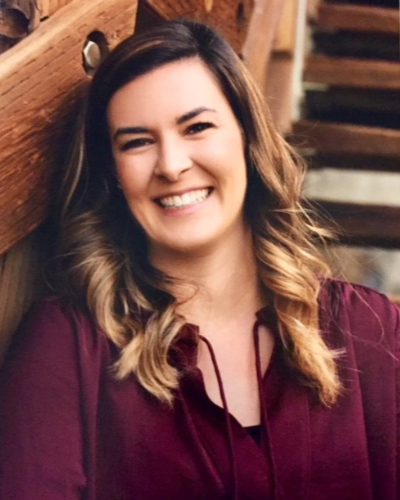 For Kayleigh Walsh MS ’14, Principal Lead Clinical Research Associate at Johnson and Johnson in Huntington Beach, California, “The thought of getting an MBA had recently crossed my mind, but just at the surface.” Walsh graduated from Regis with an MS in Clinical Research Management and Regulatory Affairs, a degree “which truly helped me build upon the foundation of the clinical research knowledge I had. I felt confident in my skills and the ability to develop further, and it even opened new career paths for me and promotions along the way.” Yet Walsh was inspired to pursue an MBA based on the rewarding experiences shared by her supervisor and a colleague. Now, she explains, “I am hoping to use this degree to grow my career even further. I see it as an opportunity to possibly leave the clinical research bubble and become more involved in the higher level company-wide decisions and practices but from the research angle. Having an MBA would give me the confidence to speak to the business side of the decision-making process and also utilize my previous research experience to make well-informed decisions for that side of the business.”
For Kayleigh Walsh MS ’14, Principal Lead Clinical Research Associate at Johnson and Johnson in Huntington Beach, California, “The thought of getting an MBA had recently crossed my mind, but just at the surface.” Walsh graduated from Regis with an MS in Clinical Research Management and Regulatory Affairs, a degree “which truly helped me build upon the foundation of the clinical research knowledge I had. I felt confident in my skills and the ability to develop further, and it even opened new career paths for me and promotions along the way.” Yet Walsh was inspired to pursue an MBA based on the rewarding experiences shared by her supervisor and a colleague. Now, she explains, “I am hoping to use this degree to grow my career even further. I see it as an opportunity to possibly leave the clinical research bubble and become more involved in the higher level company-wide decisions and practices but from the research angle. Having an MBA would give me the confidence to speak to the business side of the decision-making process and also utilize my previous research experience to make well-informed decisions for that side of the business.”
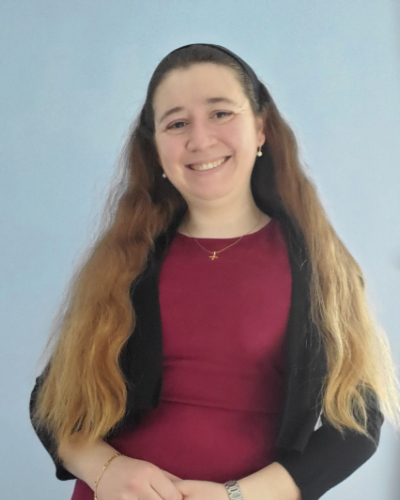 Although she found her bachelor’s in chemistry and MS in Regulatory and Clinical Research Management degrees from Regis beneficial to her work, Marissa Garozzo BA ’10, MS ’12 says she “always wanted to earn my MBA .” Like Walsh, Garozzo noticed the backgrounds of those around her at Brooks Automation in Chelmsford, Massachusetts, where she works as Associate Product Manager. The senior team all had advanced degrees and every senior manager had an MBA. “This highlights the importance of the MBA to top management,” she says. Yet ironically, she had “abandoned” her hope of earning the degree because of growing professional responsibilities. Around Easter, she received an email about the new program at Regis, laser focused on professions like hers. “Imagine my joy and excitement,” she wrote. Garozzo, who has already taken classes in Financial Accounting and Marketing Strategies and anticipates graduating next year, reports that “so far, the program is going great. I absolutely see myself coming away with what I came for. My goal for the MBA is to understand business and be able to apply it to my job, and to support the growth and success of any organization I join. I already see in my current job how this has helped me.”
Although she found her bachelor’s in chemistry and MS in Regulatory and Clinical Research Management degrees from Regis beneficial to her work, Marissa Garozzo BA ’10, MS ’12 says she “always wanted to earn my MBA .” Like Walsh, Garozzo noticed the backgrounds of those around her at Brooks Automation in Chelmsford, Massachusetts, where she works as Associate Product Manager. The senior team all had advanced degrees and every senior manager had an MBA. “This highlights the importance of the MBA to top management,” she says. Yet ironically, she had “abandoned” her hope of earning the degree because of growing professional responsibilities. Around Easter, she received an email about the new program at Regis, laser focused on professions like hers. “Imagine my joy and excitement,” she wrote. Garozzo, who has already taken classes in Financial Accounting and Marketing Strategies and anticipates graduating next year, reports that “so far, the program is going great. I absolutely see myself coming away with what I came for. My goal for the MBA is to understand business and be able to apply it to my job, and to support the growth and success of any organization I join. I already see in my current job how this has helped me.”
Members of early cohorts varied widely in their initial comfort level with business, from Garozzo who describes the field as “fascinating” and “compelling” to Walsh who was initially was concerned that “some classes or subjects would be like learning a new language to me because they were far outside the realm of my current job and I wasn’t familiar with them.”
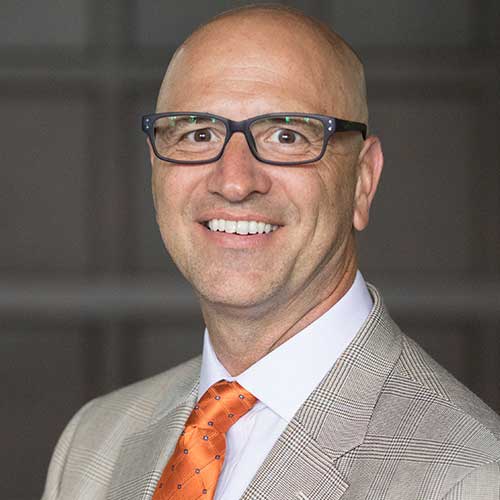 It was that fear factor at the mere mention of an accounting class for many students in healthcare and other seemingly unrelated professions that Chris Kubik wanted to address head on. Before he made the transition to higher education as chair of the Department of Business Administration at Colby-Sawyer College in 2006 and joined Regis as a Professor of Finance and Accounting in 2018, Kubik worked in operations and finance for Fortune 50 companies. So, he could relate to the angst of non-business students in a foreign land.
It was that fear factor at the mere mention of an accounting class for many students in healthcare and other seemingly unrelated professions that Chris Kubik wanted to address head on. Before he made the transition to higher education as chair of the Department of Business Administration at Colby-Sawyer College in 2006 and joined Regis as a Professor of Finance and Accounting in 2018, Kubik worked in operations and finance for Fortune 50 companies. So, he could relate to the angst of non-business students in a foreign land.
“It would be no different to me than if you said I’ve got to learn the body parts and all the blood vessels,” he said.
“I’ll just be blunt,” Kubik adds with a laugh. “There was a lot of apprehension. And I was quite honest the first day I chatted with students that my goal was first and foremost to not have them be fearful of what we were going to talk about.”
Kubik was also comically self-aware about the popularity of his subject. “What I teach is generally not well liked by most students,” he says. “It’s not something that most students clamor [for], saying ‘I can’t wait to learn about finance, I can’t wait to learn about accounting.’”
So, there is some irony in the fact that one of the least favorite subjects is taught by such a popular instructor. “As the classes go on, I am more comfortable and have learned a great deal (especially in accounting—thank you Professor Kubik!,)” writes Walsh, just one of the accolades he received from students in that early cohort.
“Of students who had to take the introductory course, I’m fairly confident that they would all say they are not fearful of the information anymore,” Kubik says. “It doesn’t mean they know everything but that they find themselves quite comfortable in learning the content and understanding it. And I think it has to do with the focused approach that we take. There’s not a wide open ‘Do you want to study McDonald’s or a tire company or something?’ We really focus it on industries [where] they can use some of their language and they see some of their language in the annual reports of these corporations because they talk about things like co-morbidities and other sorts of things you wouldn’t necessarily see in any traditional MBA program.”
Most of the students in the program so far had already been out in the working world for some time when they applied. Kubik believes that provides another commonality in terms of where they are in their career and what they’re looking for. Whether they are occupational therapists, nurse practitioners, or other healthcare professionals, “There comes a time when, I think, the day-to-day of the clinical experience and the physicality of that can be tiring. When you’re 25 and doing 12 hour shifts, it’s very different than when you’re 45 and you’re on your feet all day,” he says. “There’s still a lot of years left when you’re 45 to be working. Do you really want to do that for 20 more, or should you consider options for a supervisory role but lack the credential to be really qualified in your organization for that?”
Former paramedic Stephen Monteiro MS ’08 spent decades in various leadership positions with Caritas Christi Norwood Hospital and Boston Children’s Hospital, served as a Federal Disaster Worker with the U.S. Department of Health and Human Services, and helped Massachusetts General Hospital develop a statewide pandemic plan before making a couple of significant career decisions. “The arrival of COVID-19 became a very clear signal that it was time to test my knowledge and skills in the open healthcare market,” he explained. In August, he launched Mitigant Risk Solutions, LLC, which provides consulting services in healthcare emergency management and hospital operations. In March, he will begin the Regis MBA program.
“Being a former graduate student at Regis, I understand how valuable the educational offering is here,” he explains. “My prior studies in Organizational Development helped to shape my critical thinking and leadership philosophy as well as provided me a rich contextual understanding of why so many impossibly simple organizational problems turn out to be ‘simply impossible.’”
For Monteiro, the “advantage of being able to leverage some of my previous courses provides me the additional opportunity to further customize my MBA experience. I would say this opportunity would benefit anyone who is not looking for a ‘drive-through’ MBA program… this course could be an affordable game-changer for the right student/graduate who is seeking the formal B-school education but is willing to personalize their experience in order to amplify the benefits.”

